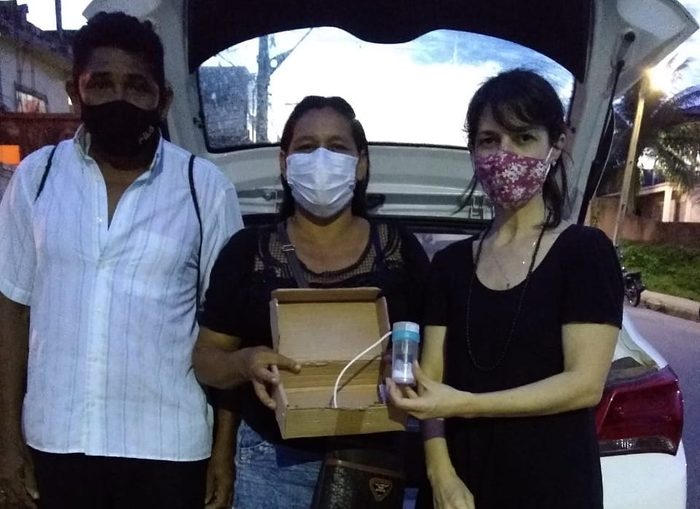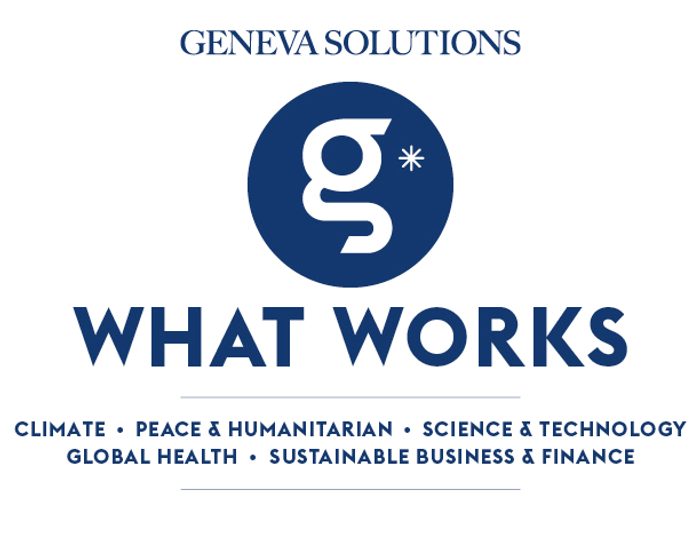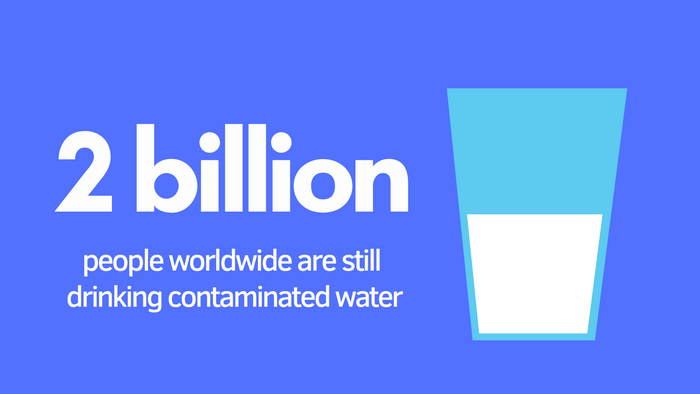Hello, this is Michelle, and as we continue to dive into the diverse challenges of water security, we examine a Geneva-born technology that can provide clean water with just salt, water and electricity. |
|
Geneva technology brings clean water to remote areas
|
|

Tabita, in the middle, receives the Nano WATA prototype. (Credit: photo courtersy of Antenna Foundation)
|
|
Deep in the Amazonian forest, a seven hour drive away from the city of Tefe in Northern Brazil, the small community of Deus é Pai struggles to get access to clean water. Tabita, a microscopist in charge of monitoring malaria at the local health centre and a midwife for the region, has made improving water security her mission. She’s one of the community leaders testing a Geneva-born technology that produces chlorine from water and salt.
No bigger than a cup, the nano WATA device is the Geneva-based Antenna Foundation’s latest addition to their wide range of electrolysers. Developed 15 years ago, the trade-marked technology has been tapped by the Solar Impulse Foundation as one of 1,000 eco-friendly solutions to sustainability challenges.
It works by running an electric current through salt water, producing active chlorine. One litre of the resulting chlorine can treat 3,300 litres of drinking water or can be used in higher concentrations to disinfect surfaces and objects, according to the organisation.
Read more in Geneva Solutions (EN)
|
|
Here's what else is happening
|
|
Dirty water.
Some 71 per cent of the global population (5.3 billion people) use a safely managed drinking-water service – that is, one located on premises, available when needed, and free from contamination, according to 2017 figures from the World Health Organization (WHO). However, globally, at least 2 billion people still use a drinking water source contaminated with faeces. Contaminated water can transmit diseases such diarrhoea, cholera, dysentery, typhoid, and polio, with 485 000 diarrhoeal deaths taking place each year. With the number of people living in water-stressed areas on the rise, so are the risks of water-transmitted diseases.
WHO (EN)
|
|
|
GS news is a new media project covering the world of international cooperation and development. Don’t hesitate to forward our newsletter!
Have a good day!
|

|
|
Avenue du Bouchet 2
1209 Genève
Suisse
|
|
|
|









